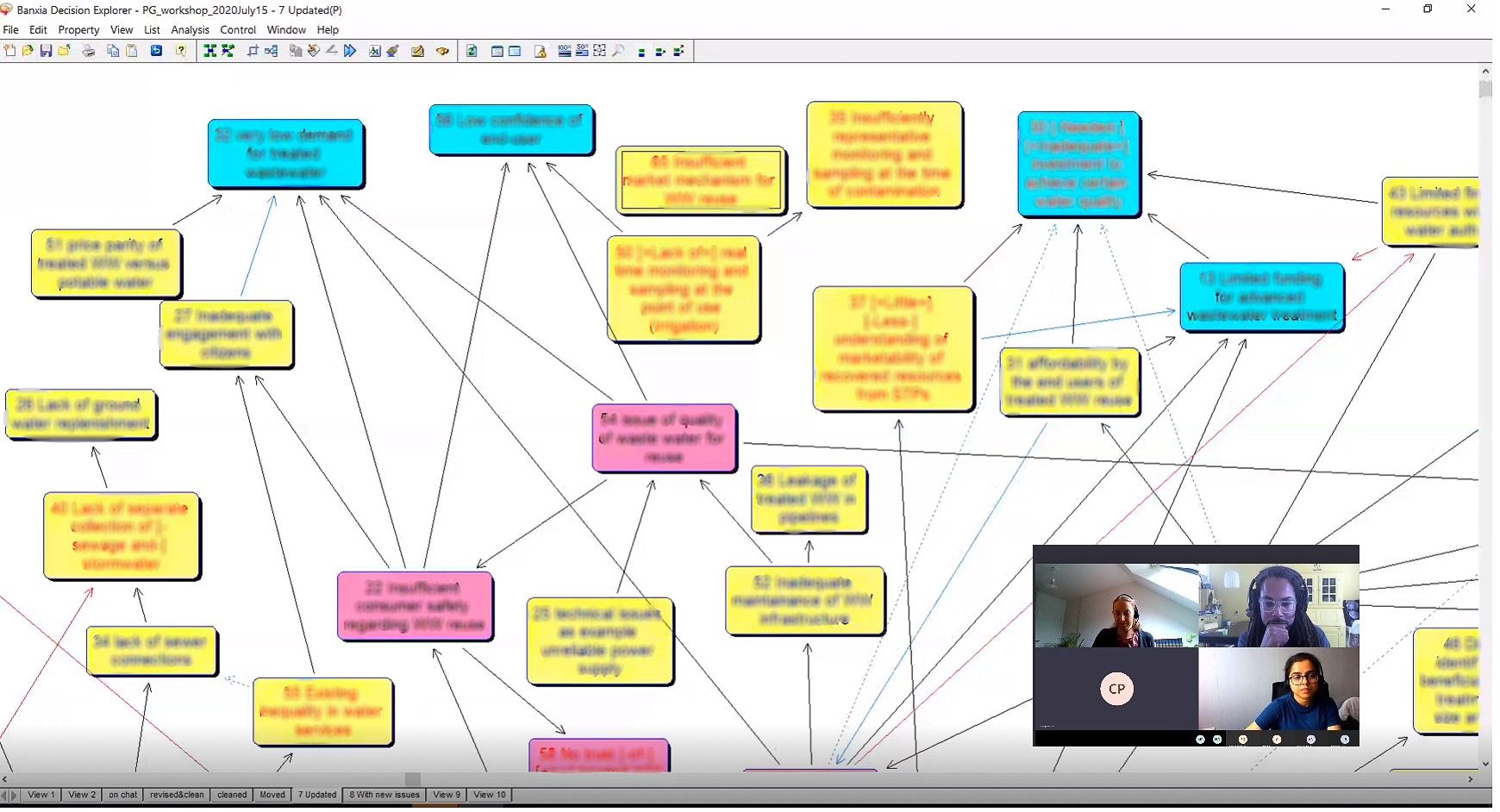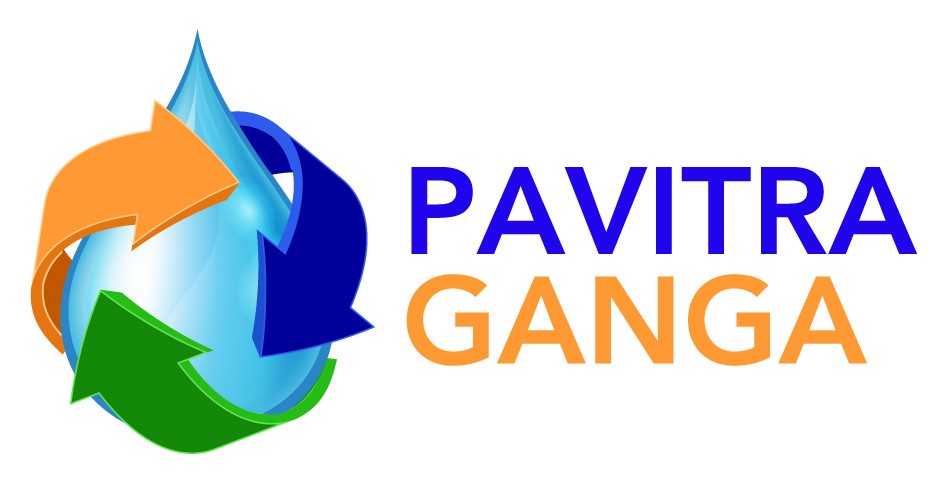‘What are the key challenges that need to be addressed with regard to wastewater treatment, reuse and resource recovery in Delhi now and in the next 10 years?’ That was the key question of an internal Pavitra Ganga co-creation workshop focusing on issue mapping as part of problem structuring, organised by Lisa Scholten and Tara Saharan of TU Delft during the summer. The participants included project partners with expertise and experience in wastewater governance from Indian and international establishments including policy advocacy organizations, research institutes, academia and private sector.
While normally this exercise would be done in a real-time personal workshop with stakeholders involved in wastewater treatment, reuse and resource recovery in Delhi, COVID-19 forced the organisers to change their approach to an online workshop with two goals in mind. First goal was to adapt to the changing research circumstances because of the restrictions in place as a result of COVID-19. This was done by defining the scope of the challenges involved in the wastewater sector in consultation with project partners that can serve as a foundation for discussion with the relevant stakeholders in Delhi. Second, to use the workshop experience with project collaborators to map feasibility of conducting problem structuring remotely.

Cognitive map
On the 30th June the co-creation workshop took place. During this online conference call participants highlighted challenges with respect to wastewater treatment, reuse and resource recovery in Delhi using issue mapping, following SODA (Strategic Options Development Analysis) method of problem structuring. This was initially done through brainstorming of issues at the individual level which was followed with a group discussion. The discussions were iterative in nature moving back and forth between issue surfacing, clustering and linking. Supported by a software tool displayed via shared screen, a group cognitive map was co-created. All mentioned issues were then grouped in preliminary clusters. After a coffee break the raised issues were linked to reflect the cause-effect relationships between issues as seen by the participants and more missing issues were added.
Consolidation and prioritization
Following the workshop, the cognitive map was tidied up and shared with the participants. In a follow-up meeting two weeks later, the same participants gathered for a new online conference call where all existing and missing issues as well as links were added. The follow-up meeting was designed around open discussion format giving ample space and time to the participants to voice their concerns. The resulting map was then shared with all participants again for agreement or comment. The last comments are being followed currently with a feedback session on the workshop outcomes to consolidate the resulting map. Once the map is agreed as ‘sufficiently comprehensive’, individual prioritization of issues will be used to focus on key issues which will inform the discussions with local stakeholders.
Objective method, subjective content
"The aim is to achieve an agreed assessment of the problem situation through graphical representation using cognitive mapping and taking into consideration subjective view of the participants”, explains Tara Saharan (TU Delft). "We employed the SODA method that seeks to capture and structure the complexity of issues reflected by multiple perspectives in a group setting."
"This leads to a shared understanding and agreement on key challenges, a very useful priority list of issues, but the most important thing is: all participants get ownership of the issues to address and we hope that this will engage them to really focus on solutions that work." The experience of conducting this workshop has provided new useful insights on perceptions of the key issues in Delhi and also enabled the participants as well as facilitators to adapt to new working environments during the unprecedented time of COVID-19 and furthermore it has served as an important learning opportunity for organizing future co-creation workshops remotely.
This leads to a shared understanding and agreement on key challenges, a very useful priority list of issues, but the most important thing is: all participants get ownership of the issues to address and we hope that this will engage them to really focus on solutions that work.

